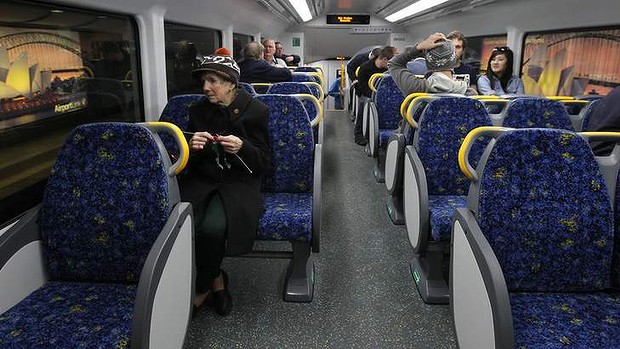

“More than 60 percent of Sydney’s train cleaners have asked for redundancy, triggering concerns about how well trains will be cleaned in the future,” stated a January 13 Sydney Morning Herald online article by Jacob Saulwick.
According to the article, redundancy applications have swept through the industry with some areas of Sydney seeing all train cleaners applying to leave . This comes as the state government prepares to privatise train cleaning after years of attempts to reform the workforce.
‘About a third of Sydney’s trains would be cleaned by private companies under the government’s latest plan, to be enabled by a costly redundancy program.’
In September, the new division created by Transport Minister Gladys Berejiklian to run train cleaning – ‘Transport Cleaning Services – told staff it was planning to cut 150 positions. But the division was soon swamped by applications stated Saulwick. About 430 of 700 cleaners and supervisors applied for redundancy, including almost 90 percent of cleaning supervisors.
‘In response, the government told staff last month it would try to offer more paid redundancies by allowing private companies to bid for about a third of Sydney’s train cleaning. It expects to offer voluntary redundancy to about 286 cleaners. Cleaners are eligible for three weeks redundancy pay for each year of service, capped at 64 weeks pay.’
Organiser Skye Morrison, of the Rail, Tram and Bus Union (RTBU), said ‘reform fatigue’ was the reason a large number of staff applied for redundancy. ”For the past three years we’ve had almost constant reform, there have been staff shortages and not filling basic positions, with the constant threat of privatisation hanging over their heads,” Morrison said. ”They’ve just had enough, I used to be a cleaner and it is pretty bleak.”
A spokesman for Sydney Trains confirmed that about a third of the cleaning was planned to be privatised. ”Tenders are expected to be released … in coming months and the new arrangements implemented by September,” he said.
Dirty trains are a significant source of complaints for Sydney Trains and NSW TrainLink. The NSW auditor-general says there were 1967 complaints about cleanliness last year, a two per cent increase on 2012.
Ms Berejiklian said the government had introduced new commercial cleaning benchmarks and organised several cleaning ”blitzes” but that ”anyone who thinks trains are as clean as they can be is kidding themselves”.
The NSW branch secretary of the RTBU, Alex Claassens, said privatisation would not mean cleaner trains. ”I don’t believe they will be cleaned as well,” he said. ”You need to be trained in the specifics of how to do things.”